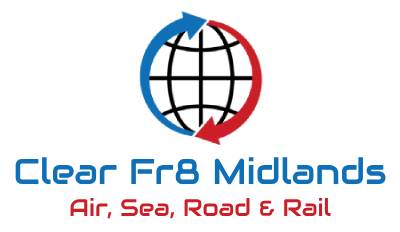Free Live AIS Ship Tracking
Introduction to AIS Ship Tracking:
The Automatic Identification System (AIS) is a radio-based tracking system that allows vessels to broadcast their identity, position, course, speed, and other information to other ships and shore-based stations. This technology was developed to enhance maritime safety, improve collision avoidance, and support efficient vessel traffic management.
How AIS Works:
AIS operates on very high-frequency (VHF) radio waves and relies on two types of equipment: AIS transponders onboard ships and AIS receivers on land-based stations or other vessels. Here's a simplified overview of how AIS works:
-
AIS Transponders: Ships are equipped with AIS transponders that continuously broadcast data about the vessel's identity, navigation status, and voyage-related information via VHF radio signals.
-
AIS Receivers: Shore-based stations, other vessels in the vicinity, and satellites equipped with AIS receivers pick up these signals. These receivers then process and display the information in real-time.
-
Data Transmission: AIS data includes the vessel's Maritime Mobile Service Identity (MMSI), position (latitude and longitude), speed over ground (SOG), course over ground (COG), navigational status (e.g., anchored, sailing), and other relevant information.
-
Display and Integration: The received AIS data is typically displayed on electronic navigation systems onboard ships, allowing mariners to identify and track nearby vessels. Additionally, this data can be integrated into vessel traffic management systems for broader monitoring.
Benefits of AIS Ship Tracking:
-
Enhanced Safety: AIS significantly improves situational awareness for mariners. It helps ships identify other vessels in their vicinity, reducing the risk of collisions.
-
Collision Avoidance: AIS enables vessels to determine the risk of collision and take necessary evasive actions. It provides real-time information on the course, speed, and intentions of nearby ships.
-
Search and Rescue: In distress situations, AIS signals can be used to locate and assist vessels in trouble quickly. This is crucial for search and rescue operations.
-
Efficient Traffic Management: AIS is instrumental in managing vessel traffic in busy waterways and ports. Port authorities and traffic control centers use AIS data to optimize traffic flow.
-
Environmental Protection: AIS data can be used to monitor vessel movements and ensure compliance with environmental regulations, such as speed limits in sensitive areas.
-
Security: AIS enhances maritime security by enabling authorities to track vessels and identify any suspicious activities or deviations from established routes.
Types of AIS Systems:
-
Class A AIS: These systems are mandatory for vessels over a certain size and are capable of transmitting and receiving AIS data. They provide comprehensive information about the vessel's identity and navigation.
-
Class B AIS: Smaller vessels that are not required to have Class A AIS may use Class B AIS, which provides basic information but with reduced transmission power and update rates.
-
AIS Base Stations: Shore-based AIS stations are essential for monitoring vessel traffic in ports and coastal areas. They receive AIS data from passing vessels and can relay it to other stations.
-
Satellite AIS: Satellites equipped with AIS receivers are used to track vessels in remote or open ocean areas where terrestrial AIS stations are not available.
Challenges and Considerations:
While AIS is a valuable tool for maritime safety and management, there are some challenges and considerations to keep in mind:
-
AIS Data Accuracy: AIS data is dependent on the proper functioning of onboard equipment. Errors or malfunctions can lead to inaccurate information.
-
Privacy Concerns: AIS broadcasts vessel information, including identity and location, which can raise privacy and security concerns. Some vessels may choose to deactivate AIS in certain situations.
-
Cybersecurity: As AIS relies on digital communication, it is susceptible to cybersecurity threats such as hacking and spoofing, which could lead to false information being broadcasted.
-
Overreliance: There is a risk of mariners becoming over-reliant on AIS data. It is essential to continue using traditional navigation techniques and maintain a lookout.
AIS ship tracking has revolutionized maritime safety and management by providing real-time information about vessel movements. It enhances navigation, collision avoidance, and search and rescue operations, making our seas safer and more efficient. As technology continues to evolve, AIS is likely to play an even more significant role in the maritime industry, contributing to both safety and environmental protection. However, it's crucial to address challenges such as data accuracy, privacy, and cybersecurity to maximize the benefits of AIS in the future.
